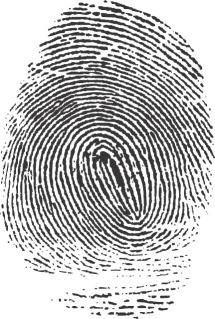This is the level at which human and all extinct siblings lie, with no other extant species, all others were killed or fucked to death: Section "Interbreeding between archaic and modern humans".
wget ftp://ftp.ncbi.nlm.nih.gov/refseq/H_sapiens/annotation/GRCh38_latest/refseq_identifiers/GRCh38_latest_genomic.fna.gz
gunzip --keep GRCh38_latest_genomic.fna.gzThe key cladograms:
- Hominoidea level for extant species separation
- Australopithecine level for extinct species separation: en.wikipedia.org/w/index.php?title=Homo&oldid=1155900663#Phylogeny
How Humans Lost Their Fur by PBS Eons (2020)
Source. Says it is linked to bipedalism to help hunting in hot weather. But could only happen fully after the invention of fire, otherwise you'd be too cold at night.Frozen and cut on Microtome at 1mm intervals.
They actually use fingerprint minutiae, not raw images, which is cool.
Bibliography:
- stackoverflow.com/questions/37147480/convert-fingerprint-bitmap-to-iso-iec-19794-2-template
- stackoverflow.com/questions/33412977/how-to-convert-a-byte-array-of-fingerprint-image-to-iso-19794-2-in-java-basica
- stackoverflow.com/questions/43937986/convert-png-image-fingerprint-to-minutiae-xyt-fingerprint-format
Bibliography:
Possibly not made not possible from userland due to privacy issues. Apparently not even kernelland can see it, only
Bibliography:
- Stack Overflow:
- stackoverflow.com/questions/35934729/capture-fingerprint-from-smartphone-and-save-to-a-file
- stackoverflow.com/questions/63257762/how-to-save-and-compare-2-fingerprints-on-android
- stackoverflow.com/questions/67104186/can-we-use-android-fingerprint-scanner-to-get-finger-pattern-and-store-that-patt
- stackoverflow.com/questions/41632225/android-where-and-how-securely-is-fingerprint-information-stored-in-a-device
- android.stackexchange.com/questions/161780/where-does-android-store-fingerprint-data
- Reddit:
The point of these is that they are good for transfection apparently.
This is really cool. Ciro Santilli would be tempted to participate, but his wife is not a fan, in part due to the loss of privacy of children. Maybe she is right...
Someone should implement a version of that where you can upload your privately sequenced genome and get analytics for free.
This was the first large part of the genome that was sequenced, in 1981: Cambridge Reference Sequence. Presumably they picked it because it is short and does not undergo crossover.
TODO: many places say "exactly" 16,569, it seems that variable number tandem repeat are either rare or don't occur!
- pubmed.ncbi.nlm.nih.gov/2881260/ 1989 reports a single length polymorphism
As mentioned by Craig Venter in 100 Greatest Discoveries by the Discovery Channel (2004-2005), the main outcomes of the project were:
- it established the ballpark number of human genes
- showed that human genomes are very similar across individuals.
Important predecessors:
Sample paper: www.nature.com/articles/ng.3247
UniProt human: www.uniprot.org/uniprot/Q9BYF1 It is interesting to see in the Mutagenesis how many known mutations can increase or decrease SARS-CoV-2 S protein binding affinity.
Articles by others on the same topic
There are currently no matching articles.


